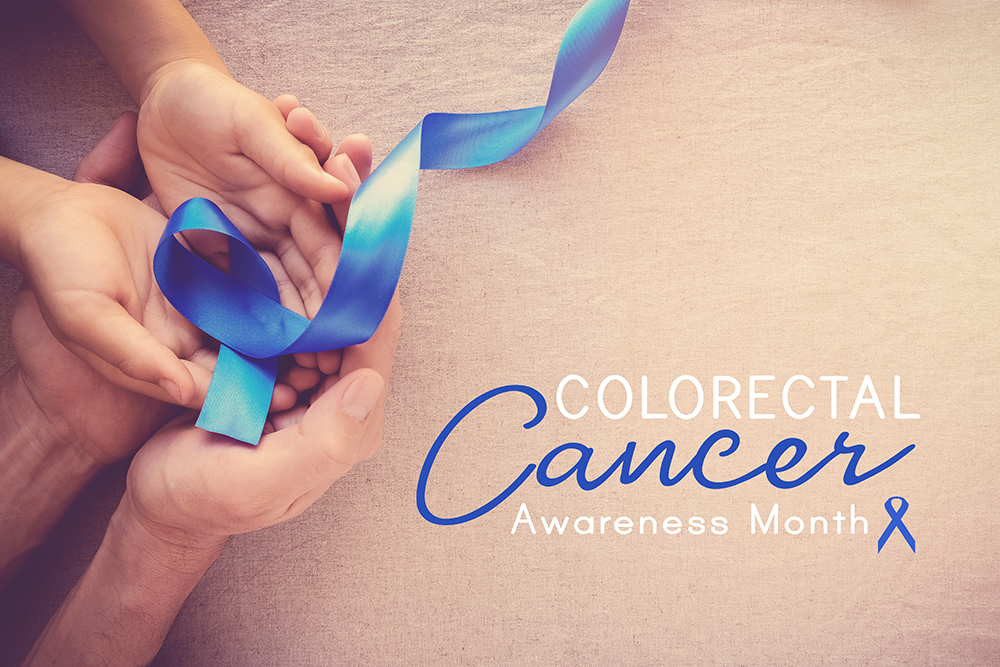A colorectal cancer diagnosis can be scary, and there may be a lot of uncertainty that comes with it. The good news is that modern medicine provides patients with multiple treatment options to help.
In this article, we will examine three of the most common types of treatment colorectal cancer patients may encounter.
IMMUNOTHERAPY TREATMENT
One of the newest promising treatments against various kinds of cancer is immunotherapy. According to the American Cancer Society, immunotherapy is focused on boosting a patient’s immune system to better recognize and destroy cancerous cells.
In immunotherapy, there are two types of procedures based on how the treatment is administered.
- Stimulating the immune system so it works harder to destroy cancer cells
- Creating additional cells in the body to help aid the body in improving the immune system
According to the American Cancer Society, colorectal cancer patients who choose to get immunotherapy will have the treatment of pembrolizumab. This treatment is specifically good for people with advanced or metastatic colorectal cancer which can be given through an IV every 3 or 6 weeks.
Immunotherapy is a new treatment that has been effective but also comes with minimal side effects. This new treatment option has been inspiring hope in cancer patients that beating cancer is possible.
According to the Cancer Research Institute, the length of immunotherapy treatment will vary from a defined number of times to an indefinite date. The length of a person’s immunotherapy treatment will depend on the stage of their cancer and how well their immune system is functioning.
Another treatment patients have access to is commonly known as chemotherapy.
CHEMOTHERAPY TREATMENT
Chemotherapy (chemo) is a common drug used to kill cancer cells. According to the Mayo Clinic, chemotherapy is a drug treatment designed to kill fast-growing cells in the body.
The Mayo Clinic also advises that there are a few reasons why chemotherapy may be used in the treatment of cancer:
- It acts as the primary or only treatment for patients with colorectal cancer
- It helps after other treatments such as surgery to kill any remaining cancer cells
- It relieves symptoms and signs of cancer
- It helps prepare a patient for other treatments, such as helping shrink a tumor making a surgical procedure easier
A lot of cancer patients will often have surgery to remove cancerous growths in the body, possibly with adjuvant therapy to provide further support on the body.
In certain situations, chemotherapy may be more beneficial than the consequences, in which case you should openly discuss the benefits with your oncologist. An oncologist can determine if chemotherapy can be beneficial for patients with colorectal cancer during their appointment. Because chemotherapy targets both cancerous and normal cells, it can often have a negative effect on the body leading to side effects.
According to WebMD, common side effects of chemotherapy include but are not limited to:
- Fatigue
- Nausea
- Hair Loss
- Anemia
Fortunately, chemotherapy is not the only cancer treatment. With advancements in medicine, a relatively new treatment has been proving to be successful in patients known as radiation treatment.
RADIATION TREATMENT
Unlike the previous treatments, radiation is a targeted therapy focusing on the spot where the cancer is located. This means during an appointment the targeted area is directly focused. This treatment uses high-energy rays to directly destroy cancerous cells in many different parts of the body.
Radiation treatment is often paired with chemotherapy as a combined treatment to better combat cancer cells. Radiation is more beneficial for some cancer types, such as colorectal cancer than for blood cancer.
The American Cancer Society advises that combining radiation with chemotherapy can make the radiation treatment more effective. The combination of the treatments is referred to as chemoradiation which may provide positive results of attacking the cancer cells in a strategic manner providing a smoother recovery.
According to the American Cancer Society, radiation treatment is used more often to treat rectum cancer, there are instances where the treatment may be used to help patients with colon cancer, such as,
- Before surgery, when paired with chemotherapy to help shrink a tumor and make it easier to remove
- Along with chemo to help control cancer if a person is not healthy enough for surgery
- To ease symptoms if advanced colon cancer is causing pain or discomfort
TARGETED THERAPY TREATMENT
While chemotherapy may attack healthy cells, targeted therapy has modified this tactic. By being administered through an IV the drug can reach all parts of the body including the colon and rectum.
As this treatment is administered through infusions, patients will receive treatment every 2 or 3 weeks, in most cases paired with chemotherapy.
According to the American Cancer Society, there are several possible side effects to be mindful of:
- High blood pressure
- Fatigue
- Mouth sores
- Headaches
- Bleeding
More serious side effects may include, but are not limited to blood clots, severe bleeding, and heart problems. Any concerns of side effects should be addressed with an oncologist to determine if targeted therapy will be useful.
Every plan will be individualized to improve quality of life and provide supportive care. Moreover, the stage of the cancer will determine whether targeted therapy is the right treatment.
WHY IT MATTERS
Preventing colorectal cancer entirely is not possible. But early screening can make a drastic difference. By getting screened patients can catch cancer early and get a better prognosis.
According to the American Society of Clinical Oncology, the five-year survival rate of people with localized colorectal cancer is 91%. If the cancer has spread to the surrounding area including nearby lymph nodes, then the survival rate goes to 72%. This is all thanks to screening and a solid treatment plan.
The University of Utah discovered that a colonoscopy can capture up to 94% of colorectal cases in the body. Therefore, it is a fantastic idea to get screened when it is time or if there are risk factors present.
For more information against prevention and combating risk factors check out MCR Health’s blog on Colorectal Cancer Prevention. If you have concerns or would like to know when you should get screened, schedule an appointment with us today!

